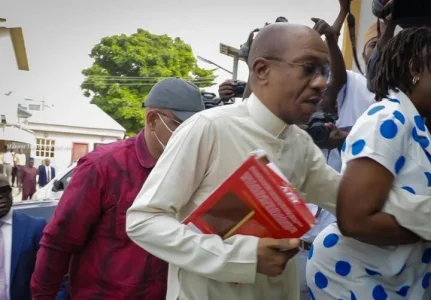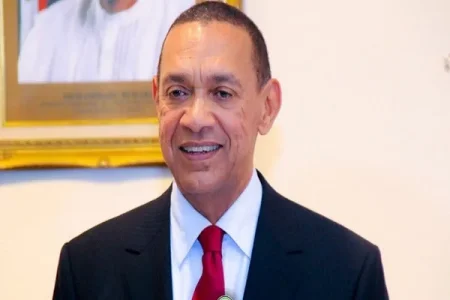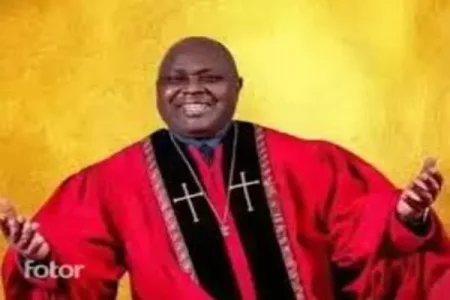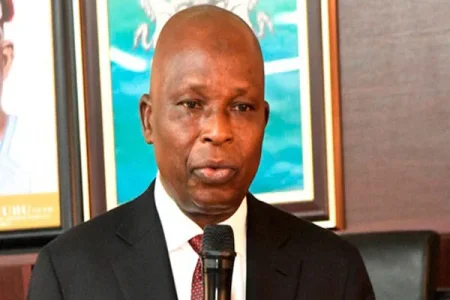A high court in Abuja has reaffirmed its order for the release of Godwin Emefiele, the former governor of the Central Bank of Nigeria (CBN), from the custody of the Economic and Financial Crimes Commission (EFCC). This court decision, issued on November 6, came after Emefiele's legal team had filed a motion ex parte, which previously led to an order for his immediate release on November 3.
The background to this case is marked by controversy. Emefiele had taken legal action against the federal government, the attorney-general of the federation, EFCC, and Ola Olukoyede, the chairman of the anti-graft agency, challenging his detention. His ordeal began on October 27 when the EFCC arrested him just after his release from the custody of the Department of State Services (DSS), where he had been held since June 10.
During the recent court proceedings, the EFCC failed to produce Emefiele, leading to a strong objection from his legal counsel. Mathew Burkaa, who represents Emefiele, pointed out the continuous disobedience of court orders and emphasized that the applicant had spent 149 days in custody. In response, Farouk Abdallah, the counsel for EFCC, contested this claim, stating that Emefiele had only been in EFCC custody for seven days. The EFCC claimed to have received the order but found incomplete documents attached. The judge questioned whether the absence of an exhibit justified the agency's disregard of the court order. The EFCC counsel explained that the agency had misunderstood the court's order and emphasized its commitment to adhering to court orders.
The matter has been adjourned, maintaini ng the release order from November 3. The case continues to generate controversy and raises concerns about legal procedures and the detention of high-profile individuals.
ng the release order from November 3. The case continues to generate controversy and raises concerns about legal procedures and the detention of high-profile individuals.
The background to this case is marked by controversy. Emefiele had taken legal action against the federal government, the attorney-general of the federation, EFCC, and Ola Olukoyede, the chairman of the anti-graft agency, challenging his detention. His ordeal began on October 27 when the EFCC arrested him just after his release from the custody of the Department of State Services (DSS), where he had been held since June 10.
During the recent court proceedings, the EFCC failed to produce Emefiele, leading to a strong objection from his legal counsel. Mathew Burkaa, who represents Emefiele, pointed out the continuous disobedience of court orders and emphasized that the applicant had spent 149 days in custody. In response, Farouk Abdallah, the counsel for EFCC, contested this claim, stating that Emefiele had only been in EFCC custody for seven days. The EFCC claimed to have received the order but found incomplete documents attached. The judge questioned whether the absence of an exhibit justified the agency's disregard of the court order. The EFCC counsel explained that the agency had misunderstood the court's order and emphasized its commitment to adhering to court orders.
The matter has been adjourned, maintaini
 ng the release order from November 3. The case continues to generate controversy and raises concerns about legal procedures and the detention of high-profile individuals.
ng the release order from November 3. The case continues to generate controversy and raises concerns about legal procedures and the detention of high-profile individuals.



